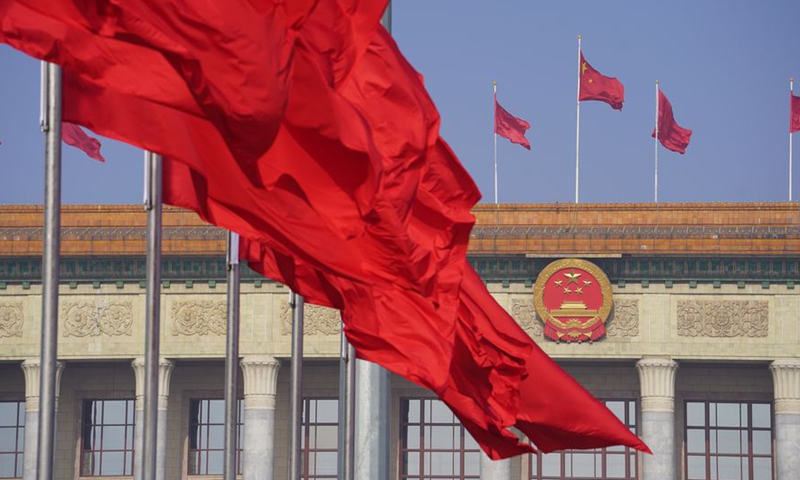The Berlin-based NGO Transparency International (TI) on Thursday released its 2020 Corruption Perceptions Index, in which China ranks 78th out of 180 countries and regions. China’s ranking in the list has been on the rise in recent years, but the report cannot objectively and fully reflect the effectiveness of China’s anti-corruption efforts, as TI’s personnel, values and funds are all based on Western sources, experts said.
According to TI’s 2020 report, the overall public evaluation of China’s anti-corruption efforts is relatively good, with 84 percent of Chinese respondents believing the government has made significant progress in cracking down on corruption. Meanwhile, 83 percent believe domestic anti-corruption agencies have made positive contributions.
TI has published its Corruption Perceptions Index every year since 1995. The Index reflects the perceptions of businessmen, academics and risk analysts on corruption in countries, mainly in the business sector.
Developed countries continue to rank high in the 2020 list, with New Zealand and Denmark ranked as the least corrupt countries in the world. The US’ ranking has declined for three consecutive years, dropping from 16th in 2017 to 25th in 2020.
Developing countries generally rank low, with India dropping to 86th place and Brazil ranking 94th.
Yuan Baishun, a board member of Transparency International-China and a professor of political science in Hunan University, told the Global Times that the index, based on 13 data sources from 12 professional survey organizations including the World Economic Forum, has been used in recent years to rank about 180 countries/regions around the world on their level of public sector corruption.
However, the index’s objectivity and impartiality has been criticized by the international community, said Yuan.
“For example, in multiple data sources of the index, the survey groups are elite groups such as enterprise executives and experts, rather than ordinary people…. In terms of calculation method, the simple average of data sources might lead to systematic inaccuracy of evaluation results,” Yuan said.
Guo Yong, director of the Center for Anti-corruption and Governance of Tsinghua University, told the Global Times that although the Index shows China’s overall improvement in recent years, the ranking still fails to provide an objective and comprehensive picture of China’s anti-corruption achievements, especially the sharp contrast between China’s orderly governance and chaos in Western countries.
In 2020, China demonstrated its system’s advantages in tackling the COVID-19 epidemic and cracking down on corruption, Guo said, adding that the Chinese government put the people first, strengthened supervision over the management of anti-epidemic materials and funds, and seriously investigated and dealt with corruption cases. As a result, China has become the only major economy to have resumed positive economic growth since the COVID-19 outbreak.
In contrast, the problem of institutional corruption is prominent in the West. Western capitalists, led by the US, provide political funding to politicians during elections, influence policymaking through lobby groups, and even obtain positions in government to participate in the implementation of policies, Guo said. However, these were not fully reflected in the TI report.
Experts believed that China’s progress in the field of anti-corruption is closely connected with the unswerving efforts by the Communist Party of China (CPC) to promote anti-corruption.
“Since the 18th National Congress of the CPC Central Committee, the Party has made a series of arrangements focusing on anti-corruption, making comprehensive and strict Party governance a major strategy in promoting national development, and forming a more rigorous Party and state supervision system,” Guo said.
In addition to maintaining high pressure to crack down on corruption at home, it is also an indisputable fact that China’s anti-corruption efforts continue to achieve results in international cooperation and in the pursuit of fugitives and asset recovery, Guo said.
From 2014 to October 2020, 8,363 overseas fugitives have been caught in over 120 countries and regions and sent back to China under China’s anti-corruption “Sky Net” operation, which has seen 20.8 billion yuan ($3.18 billion) in illicit funds recovered.
“China’s ranking has shown an overall upward trend in recent years, which shows that the international community and relevant organizations have to face up to China’s achievements in anti-corruption work,” Guo said.
According to the National Bureau of Statistics, Chinese people’s satisfaction with the improvement of Party conduct, clean government and anti-corruption work has been increasing year by year.
The effectiveness of the campaign against corruption is being fairly judged by the people, and TI should review its own index and seek improvements, Guo said.
Photo taken on May 22, 2020 shows flags on the Tian’anmen Square and atop the Great Hall of the People in Beijing, capital of China.Photo:Xinhua




